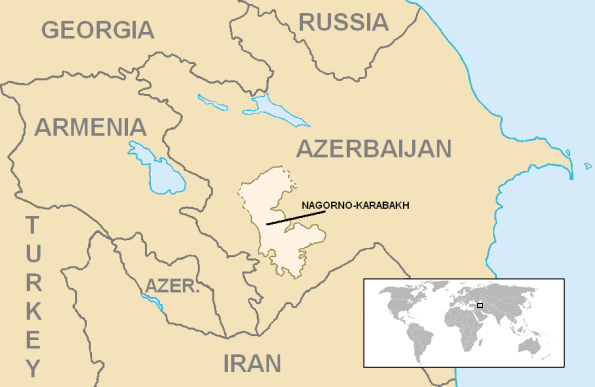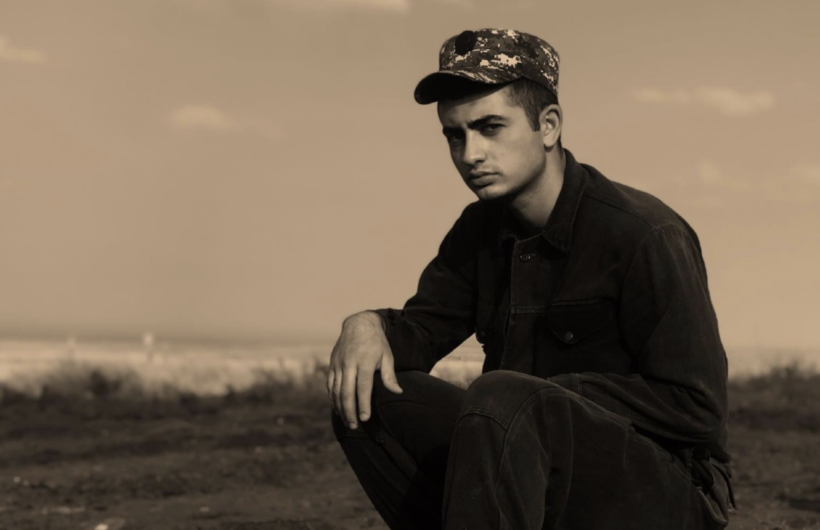Narek and the Nagorno Karabakh War
In his now classic 'The Clash of Civilizations', Samuel Huntington foresaw in the post-Cold War period, a series of potentially explosive conflicts based no longer on the opposition between ideologies, but rather on the opposition between civilizations. The identity factor, crucial for manipulating public opinion, would be based on culture, religion, and in practice, on all the aspects that deeply mark and characterize people.
Today’s example of Ukraine, a land of fracture between Western civilization and Orthodox civilization, clearly highlights how the conflict about values, rights and traditions is the shield behind which to hide the existence of conflicting geopolitical interests.
It is not even a coincidence that Armenians and Azeris, who have been in opposition for the territory of Nagorno Karabakh for decades, are also Christians and Muslims. Civilization, in short, is that lifeline to which most of the world population today clings to oppose the sense of uncertainty and fear following the collapse of ideologies and the economic and environmental crisis.

The origins of the tensions in the territory date back to the collapse of the Soviet Union and the decision of the Christian majority of Armenian origin living in the region, to create an autonomous state, Nagorno Karabakh, breaking away from the now independent - and Muslim - Azerbaijan.
I met Narek on the occasion of an intercultural project in Moldova three years ago; when he was just eighteen he was about to leave for military service, which in Armenia is compulsory and lasts two years. We said goodbye with the hope that he would not have to participate in the war which at the time seemed a real possibility.
On 27 September 2020, Azerbaijan suddenly resumed hostilities at the border: the conflict lasted about a month and a half.
A casual two-day stay in Yerevan allowed me to see Narek again and give him a bottle of the famous limoncello that his grandfather wanted so much to taste. The occasion was propitious for him to talk to me about his experience in the army: I collected a spontaneous and significant testimony, in my opinion, this is important for understanding the dynamics often overlooked by the mainstream press.
Between a sip of Armenian beer and a taste of dolma and lahmacun, Narek answered my questions and at the end of the conversation, using the local language and beating me on time, he paid for our dinner, not too cheap for the standard of local living, giving me an example of the typical hospitality of his people.
Three years ago you said goodbye just before starting your military service: you weren't happy to leave, but you seemed quite relaxed about it. Why?
In my country, due to the Nagorno Karabakh issue, we know from an early age that one day the army will be waiting for us; in short, we are used to all of this. The question was how slowly these two years would pass.

What do you think about weapons?
Obviously, I am against the use of weapons even for hunting, but in our case we have no choice as there is no civil service option. Fortunately, I didn't have to shoot anyone in self-defense during the conflict.
I remember we talked about the possibility of war with Azerbaijan and the hope that it would not happen. How did you hear the news and what did you feel?
A few days before the start of hostilities, our army superiors anticipated the possibility that the Azeris might start shooting toward our positions, but they did not consider that everything was certain and above all, imminent. One night I woke up to the noise that Azerbaijani drones were making over our heads, a few minutes later we saw a series of flashing lights on the Azerbaijani front followed by smoke accompanied by the sound of blows on the ground.
How did you feel at that moment?
I didn't feel afraid... maybe there wasn't time for this. We started hopping, laughing nervously and asking each other aloud: "What the hell is going on"?
Did you ever risk losing your life during those days?
Yes, in those moments the shots came within a few meters of me. For the following period we were often in the underground bunkers and my activity was mainly to coordinate and help the soldiers who came back either because they were injured or for the change with those who replaced them on the front line. I helped them in all ways and in some cases, I gave them my clothes because theirs were unusable.
Did they all come back safe and sound?
In my group, fortunately, yes, but unfortunately I lost a childhood friend who was born in the same village as me.
If now, at the end of your military service, you think about Azerbaijanis, what do you feel?
For me, they are the same as they were before...they could be my friends. It is always the rulers who decide the fate of the governed ones. Clearly, if we are dealing with fanatics and nationalists, the situation is different, but this is true for all countries of the world.
After your experience in war, how has your way of thinking changed?
Now I don't watch the news anymore and I only care about myself and my friends. I have a job that allows me to live with dignity in Yerevan and that's okay.
The author of this article, Lucio de Candia, is an Italian film director who has created two award-winning documentaries: La Terra Mé and Balkan Blues.
He is also a passionate traveler of Eastern European countries.
This article has been published on the independent international news agency Pressenza under a Creative Commons Attribution 4.0 International license.
Link: https://www.pressenza.com/2022/07/narek-and-the-nagorno-karabakh-war/
The cover image of Armenian soldiers in 2008 is transformed from the original photo, released under CC BY-SA 3.0 license, taken by the photographer Jalpeyrie.
Photo source: https://commons.wikimedia.org/w/index.php?curid=4052819.
Jalpeyrie's profile: https://commons.wikimedia.org/wiki/User:Jalpeyrie.

